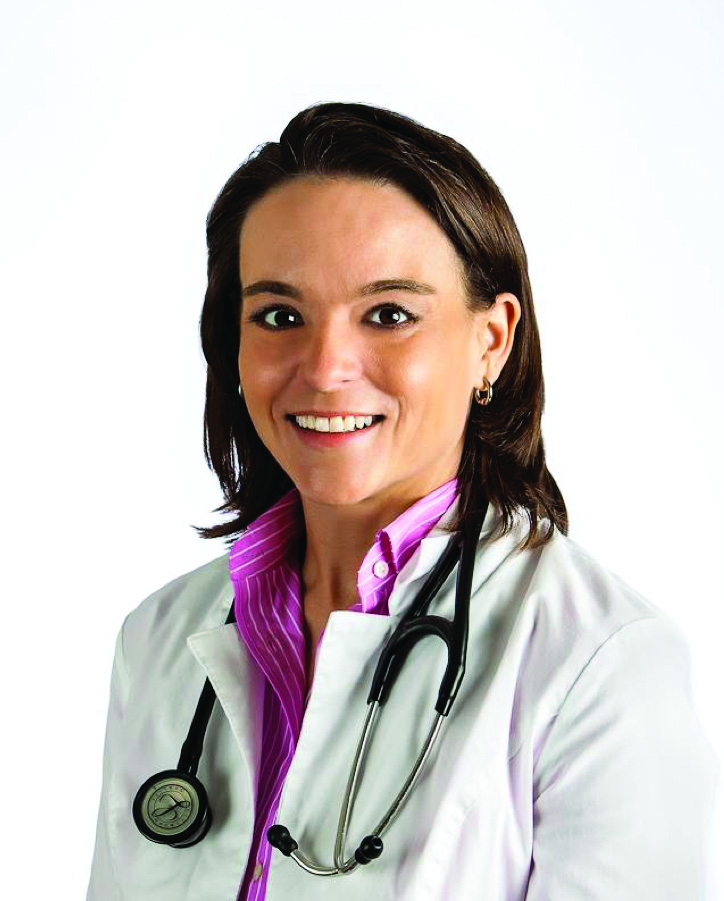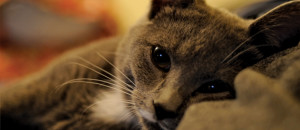
The Human/Animal Bond

What the gay community taught me.
by Dr. Christine Cornelius
See also: A Montrose artist is drawn to pet portraits
My primary goal as a hospice veterinarian is to reduce and prevent suffering, both for pets and the humans who love them. I am often asked: What made you decide to start offering these services in Houston, and how do you cope with death every day?
I have always been interested in pain management, palliative care, and senior-wellness through the use of companion animals. After eight years of clinical practice and some soul-searching, I discovered exactly what I was supposed to be doing all along. As far as coping with death on a daily basis, I tell people that it is not death that bothers me, it is the suffering.
Death brings peace, and fortunately for our profession, it is legal to perform a humane euthanasia on a suffering animal at any point. In the end, the biggest motivating factor for me is witnessing the amazing bond between an animal and a human every single day of my life. I see a lot of sadness and tears, but I know this comes from a deep love between animals and their caretakers.
An older couple called me one day, requesting my services to help end the suffering of their aging cat, who developed a tumor in her esophagus. She started having difficulty breathing, and there wasn’t much time left. I agreed to meet them in their home that day. When I arrived, I noticed they had torn out and placed on their kitchen table the OutSmart magazine article about my services that was published when I first started Last Wishes almost a year ago. On top of the article was a copy of the poem “Last Battle” that I have on my website. The poem encourages humans to be brave when faced with the decision to end the life of their beloved companions.
The couple has a son my age who is gay and lives in Chicago. They support gay rights and gay-owned businesses here in Houston—most likely because their son is a wonderful man whom they love very much. Their son could not be present for the euthanasia, so the couple arranged to fly to Chicago after my appointment to help him through his grief. I was very touched by this. I wish every LGBT person had such supportive and loving parents.
I am also reminded of another call I received from a man whose elderly cat had begun to suffer from the effects of her failing kidneys. After arriving at his home, I learned that the cat had belonged to his partner, who passed away a few years ago after he developed AIDS-related complications. He promised his partner that he would continue to care for his cat as if she were his own.
This man spent a considerable amount of time and resources to keep his partner’s cat healthy for as long as possible, and when the time came to end her life, he chose to give her the gift of a peaceful passing at home. He brushed her gently as she transitioned to heaven, and although it caused him great pain, he told me it gave him peace knowing she was going to be reunited with his partner once again.
This summer I received a call from a woman whose wife was too distraught to speak to me about her ailing twenty-year-old dog who could no longer get up. I arrived to find her wife collapsed in grief with her arms wrapped around this dog that had been with her since she was an eleven-year-old girl. The two women were recently married in their home state and insisted the dog witness their union live via a webcam set up by one of their friends. They wanted their pet to be a part of the best day of their lives together. Their love for their companion compelled them to be brave in a moment she needed them most. They gave their dog the kindest and most special gift of all that day—a very peaceful passing at home, where she wanted to be, surrounded by a family who was willing to begin their own suffering in order to end hers.
Earlier this year, I was invited to meet one of the therapy cats at Omega House in Houston. This nonprofit organization provides hospice care to HIV-positive individuals in the community. The cat developed pancreatitis and fatty liver disease, which caused her liver to fail. A few days after my initial consultation, the decision was made to end her suffering. She hadn’t eaten in several days, and was now very weak and jaundiced.
On the day I returned to Omega House, several members of the staff and some of the patients gathered in one of the hospice rooms. They gently placed the cat on one of the patient beds, and for the first time, they witnessed the peaceful passing of a furry friend—one who had provided comfort and support to so many throughout the years at the Omega House. I am certain she will not be forgotten, and her memory will continue to provide comfort to those wh o loved her.
o loved her.
I have learned that the LGBT community has so much to offer to humanity. I continually witness their respect, honor, unconditional love, empathy, sympathy, selflessness, bravery, strength, sacrifice, support, endearment, and kindness. These experiences enrich my life, bring me joy, and most importantly, make me a better human being.
Christie Cornelius, DVM, is the owner of Last Wishes In-Home Pet Hospice and Euthanasia in Houston.










